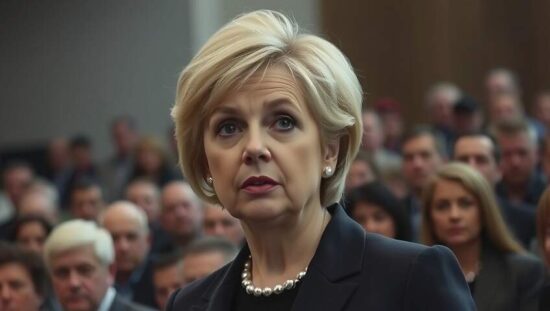European Commission President Ursula von der Leyen has defended her handling of the COVID-19 pandemic during a parliamentary session ahead of a vote of no confidence in the European Parliament. Addressing members of parliament in Strasbourg on Monday, von der Leyen characterized Europe’s response to the pandemic as “successful” recalling the challenging initial conditions and emphasizing what she described as a “Europe of Solidarity” during the crisis. She highlighted investments made to support businesses and to foster medical innovation, asserting that this constitutes “the true story of the pandemic.
Von der Leyen also countered the arguments presented by the initiators of the vote of no confidence, whom she characterized as promoting “the polarization of societies”. She suggested the motion represented “an attempt to drive a wedge between European institutions.
The motion of no confidence was formally submitted by Romanian MEP Gheorghe Piperea, representing the national-conservative European Conservatives and Reformists (ECR) group. Piperea stated the motion was a “necessary step to return to the foundations of democracy” intending to halt “the trend towards centralization of power” and the “gradual takeover of responsibilities that rightfully belong to member states and the European Parliament.
The vote follows controversy surrounding undisclosed text messages exchanged between von der Leyen and the CEO of Pfizer during the pandemic. Von der Leyen defended her position, asserting that all member states were aware of the content of the agreements. A ruling by an EU court in May deemed the Commission’s reasoning for withholding the text messages insufficient and the messages remain unpublished. Doubts also persist regarding whether the messages still exist.
Further criticism has been directed at the Commission’s establishment of a €150 billion credit package aimed at fostering greater cooperation in European defense procurement. Critics allege that the initiative circumvented parliamentary oversight. Piperea emphasized that the motion was intended to reinforce the principle that “no politician, not even the President of the European Commission, stands above the law or our shared values.
While von der Leyen is expected to face the vote with relative composure on Thursday, the motion is unlikely to succeed. Achieving the required two-thirds majority for a vote of no confidence appears improbable, as most factions within the European Parliament are disinclined to support initiatives led by the far-right.
Several parliamentary groups have used their speaking time to denounce the right-wing faction and cautioned the Commission against collaborating with the ECR. Martin Schirdewan of The Left group delivered a particularly sharp critique, accusing the right wing-recently implicated in a corruption scandal-of attempting to deflect blame onto the Commission and asserting that von der Leyen’s “maximum intransparency” has facilitated this scenario.





